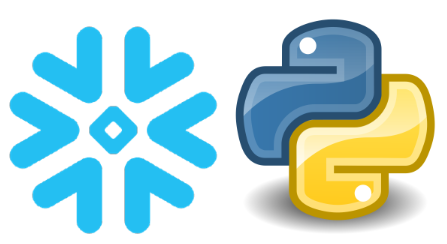A Detailed Overview of the ARRAY_SLICE Function in Snowflake
The ARRAY_SLICE function is a versatile tool in Snowflake’s array function arsenal that allows you to select a subset of elements from an array. This function can be extremely useful in scenarios where you need to extract specific parts of an array based on the index. This article will guide you through the process of using the ARRAY_SLICE function effectively in Snowflake. We’ll start with a brief introduction of its syntax, followed by a step-by-step example with a Data Definition Language (DDL) script and an INSERT statement.
The ARRAY_SLICE function in Snowflake follows the below syntax:
ARRAY_SLICE(<array_expression>, <start_index>, <end_index>)
<array_expression>: The array from which to extract the subset.
<start_index>: The beginning index from where the subset should start. Array indices in Snowflake start at 0.
<end_index>: The end index where the subset should stop. This index is inclusive.
Implementing the ARRAY_SLICE Function
To better understand how the ARRAY_SLICE function works, let’s work with a practical example. We will create a table named ‘freshers_in’ and insert some data into it.
Creating a Table using DDL
CREATE TABLE freshers_in (
id INTEGER,
interests ARRAY
);
Inserting Data into the Table
We’ll populate this table using the ARRAY_CONSTRUCT function to create arrays of integers.
INSERT INTO freshers_in (id, interests)
SELECT 1, ARRAY_CONSTRUCT(1, 2, 3, 4, 5) UNION ALL
SELECT 2, ARRAY_CONSTRUCT(6, 7, 8, 9, 10) UNION ALL
SELECT 3, ARRAY_CONSTRUCT(11, 12, 13, 14, 15);
Using the ARRAY_SLICE Function
Now that we have our table populated, we can proceed with using the ARRAY_SLICE function.
SELECT
id,
interests,
ARRAY_SLICE(interests, 1, 3) AS sliced_interests
FROM
freshers_in;
Output
ID INTERESTS SLICED_INTERESTS
1 [ 1, 2, 3, 4, 5 ] [ 2, 3 ]
2 [ 6, 7, 8, 9, 10 ] [ 7, 8 ]
3 [ 11, 12, 13, 14, 15 ] [ 12, 13 ]The ARRAY_SLICE function in Snowflake is a powerful tool for manipulating and extracting subsets of data from arrays. With the understanding of its syntax and usage, you can explore complex queries and generate useful insights from your data. The key is to practice and experiment with the function to better understand its application in various scenarios.
Snowflake important urls to refer
![Snowflake : Selecting a subset of elements from an array[ARRAY_SLICE] Snowflake](https://www.freshers.in/wp-content/uploads/2021/01/snowflake_logo-1.gif)






